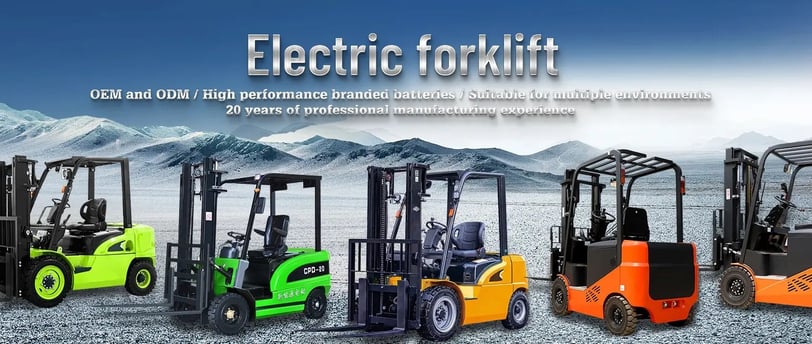The Role of Forklift Trucks in Supply Chain Management
The Role of Forklift Trucks in Supply Chain Management


Title: Optimizing Supply Chain Efficiency: The Role of Forklift Trucks
In the dynamic landscape of supply chain management, efficiency is paramount. Every link in the supply chain plays a crucial role in ensuring smooth operations and timely delivery of goods. Among these links, forklift trucks stand out as unsung heroes, quietly but effectively facilitating the movement of goods within warehouses and distribution centers. Let's delve into the pivotal role that forklift trucks play in optimizing supply chain efficiency.
1. Streamlined Operations: Forklift trucks streamline warehouse operations by enabling the efficient movement of goods. Whether it's unloading shipments from trucks, transporting pallets within the warehouse, or loading products onto delivery vehicles, forklifts significantly reduce manual labor and turnaround times.
2. Maximized Storage Space: With their ability to lift and stack pallets vertically, forklift trucks make the most of available warehouse space. By maximizing storage capacity, businesses can stockpile more inventory and respond promptly to fluctuations in demand.
3. Just-in-Time Inventory Management: Forklift trucks facilitate just-in-time inventory management by swiftly transporting goods as needed. This agile approach minimizes excess inventory holding costs while ensuring that products are readily available to meet customer demands.
4. Safety and Precision: Modern forklift trucks are equipped with advanced safety features and ergonomic designs to enhance operator comfort and productivity. With precise control over lifting and maneuvering, forklift operators can navigate through narrow aisles and congested spaces with ease, minimizing the risk of accidents and product damage.
5. Adaptability to Diverse Environments: Whether it's a sprawling warehouse, a congested loading dock, or a rugged outdoor storage yard, forklift trucks are designed to operate in diverse environments. Their versatility allows businesses to optimize workflow efficiency across different operational settings.
6. Integration with Technology: The integration of forklift trucks with telematics and warehouse management systems (WMS) enables real-time tracking of inventory movement. By leveraging data analytics and automation, businesses can identify bottlenecks, optimize routing, and enhance overall operational efficiency.
7. Environmental Sustainability: Electric forklift trucks offer a sustainable alternative to traditional gas-powered models, reducing carbon emissions and operating costs. With the growing emphasis on environmental stewardship, businesses can enhance their brand reputation by adopting eco-friendly forklift solutions.
In conclusion, forklift trucks play a pivotal role in optimizing supply chain efficiency by streamlining operations, maximizing storage space, facilitating just-in-time inventory management, ensuring safety and precision, adapting to diverse environments, integrating with technology, and promoting environmental sustainability. As businesses strive to meet the demands of an increasingly competitive marketplace, investing in advanced forklift solutions is not just a choice but a strategic imperative for success in supply chain management.
